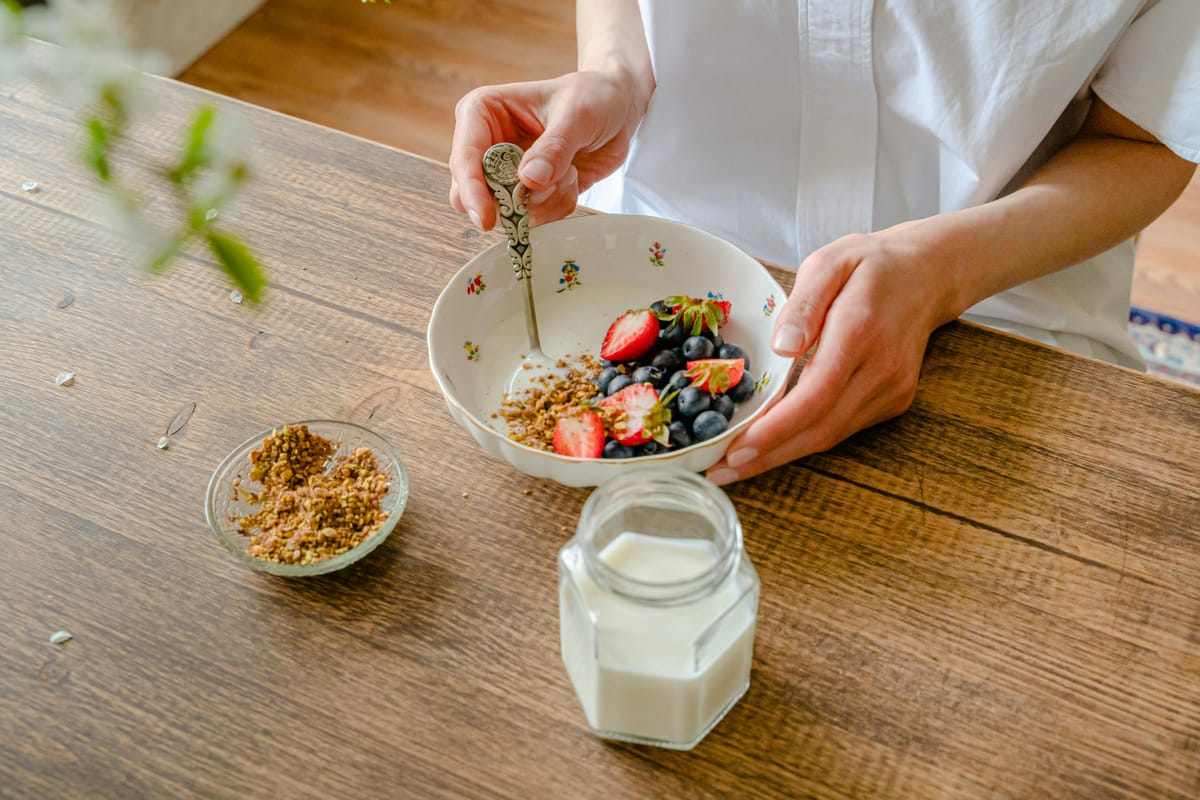Understanding Your Gut Without Going Broke on Probiotics
What if the secret to a healthier gut and a better you has been hiding in your kitchen all along? No pricey powders. No trendy pills. Just the food sitting in your fridge. Here's how to understand your gut… without spending a fortune.

Gut health gets a lot of attention these days, and for good reason. A thriving gut microbiome is linked to better digestion, immunity, energy, and even mood. But with so many pricey supplements and powders on the market, it’s easy to wonder: do you really need to spend a small fortune to take care of your gut?
The good news? Not at all. Supporting your gut can start with something far more accessible: your everyday meals.
Focus on Food First
The most budget-friendly and effective way to nourish your gut isn’t found in a pill. It’s on your plate.
Whole, plant-based foods are your starting line for a healthy microbiome. Think fiber-rich fruits, veggies, legumes, and whole grains.
These foods act as fuel for the good bacteria already living in your gut.
What to include more often:
- Whole grains like oats, brown rice, quinoa
- Legumes such as beans, chickpeas, and lentils
- Fruits and vegetables in every color
- Nuts and seeds for fiber, healthy fats, and polyphenols
- Healthy fats from olive oil, avocados, and flaxseeds
These aren’t obscure superfoods. They’re everyday staples that are easy to find and relatively inexpensive.
The Power of Fermented Foods
You’ve probably seen rows of probiotic drinks and capsules lining store shelves, but there's a more affordable way to introduce good bacteria into your system: fermented foods.
Foods like yogurt, kefir, sauerkraut, kimchi, miso, and tempeh are naturally rich in beneficial bacteria.
They’re not only gut-friendly, they’re also flavorful, accessible, and sometimes even fun to make at home.
Homemade sauerkraut, for example, requires just cabbage, salt, a clean jar, and a little patience. It’s a small effort for a big reward.
Prebiotics vs. Probiotics: What's the Difference?
Understanding the language around gut health can help you make smarter choices without overspending.
- Prebiotics are a type of fiber found in plant foods. They feed your good gut bacteria. You can get these from foods like garlic, onions, bananas, asparagus, and whole grains.
- Probiotics are the live bacteria themselves. They're found in fermented foods and supplements.
Many probiotic supplements don’t always survive the journey through your digestive system.
That’s one reason whole fermented foods can be a more reliable and much more affordable option.
Lifestyle Habits That Help
Gut health isn’t just about food. Movement, stress levels, and daily habits all play a role.
What supports your gut:
- Regular exercise, even light walking or stretching
- Consistent sleep
- Reducing stress through mindfulness, breathwork, or downtime
- Cutting back on alcohol and processed foods, which can disrupt your gut bacteria
These lifestyle choices are simple, free (or low-cost), and just as important as what’s on your plate.
Do You Ever Need Supplements?
For most people, the answer is: probably not. A well-rounded, gut-supportive diet often does the trick.
But people with specific digestive issues (like IBS or chronic bloating) may benefit from targeted supplements or specific types of fiber.
If that’s the case, it’s best to speak with a healthcare provider before diving into the supplement aisle.
Smart Ways to Support Your Gut on a Budget
- Shop for gut-friendly staples like beans, lentils, carrots, oats, apples, and bananas
- Buy frozen fruits and vegetables to save money without sacrificing nutrition
- Make your own yogurt, kefir, or sauerkraut at home
- Gradually increase your fiber and fermented food intake to avoid bloating or discomfort
Final Thoughts
Gut health doesn’t have to be complicated or expensive. While probiotic supplements might sound like a quick fix, your daily habits and food choices matter most.
Focus on a diverse, fiber-rich, plant-forward diet with a few fermented favorites is the simplest, most sustainable way to care for your gut.
And when you build your approach on real food and small, steady changes, your gut (and your wallet) will thank you.